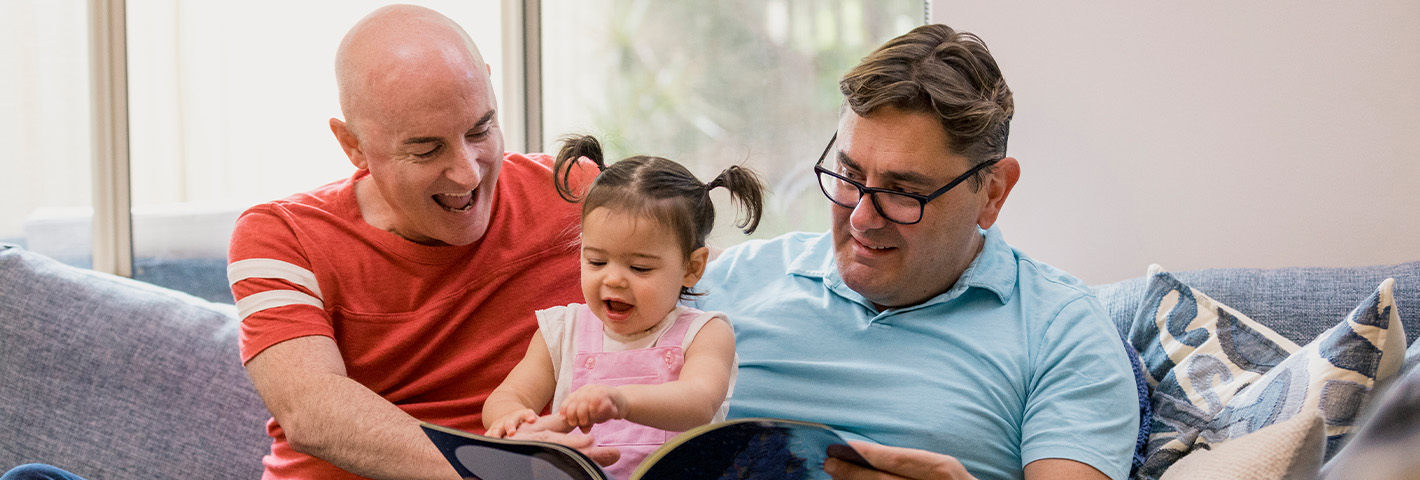- Investing
Some LGBTQ+ individuals face additional challenges when growing their money. Tailored financial planning can help

At a glance
- Everyone needs a financial plan to help them reach their goals, but LGBTQ+ individuals may feel that financial advice isn't an inclusive space.
- LGBTQ+ individuals may face specific hurdles in growing their finances.
- We are working to support the LGBTQ+ community better.
Everyone needs a pot of money to support them in later life, and whether that comes from retirement savings or investments will depend on their own life circumstances.
Financial advisers can help people map out their journey and take steps towards reaching their goals, but it’s fair to say the finance industry doesn’t always ‘speak’ to the LGBTQ+ community.
This matters because, while everyone faces challenges in growing their wealth, LGBTQ+ individuals may experience additional barriers.
There’s a lot of work that needs to be done within the financial services industry to improve how we work with LGBTQ+ individuals. It's important that we play our part to better the industry and build a more inclusive approach.
The data gap
There isn’t a huge amount of research into how being LGBTQ+ affects wealth accumulation over the course of a lifetime – and this is the first issue we would like to influence. We recently funded innovative research by LGBT Great 'LGBT+ Lens Investing in the 2020s’. Supporting research like this is something that we will continue to do.
Historically, banks and insurance companies have used traditional definitions of male and female when talking to customers and calculating individuals’ retirement age or the premium on insurance policies, for example.
This is because they rely on actuaries’ models of life expectancy, health, average earnings and so forth, which tend to use data that assumes the gender binary – by asking people if they’re male or female.
In turn, actuaries have traditionally used heteronormative assumptions in their calculations, such as presuming a woman is married to a man three years older. There’s increasing recognition that data based on these models don’t tell the full story for everyone.
We have spoken to clients and a range of stakeholders to better understand the real-life experiences of the LGBTQ+ community. With this in mind, we are reviewing our processes and structures to ensure that our services are tailored to each person’s needs, whether they’re a married lesbian, a non-binary entrepreneur or a high-earning gay man – whatever their situation.
What are the challenges faced by the LGBTQ+ community?
These definitions and identities matter because we know it can be harder for some LGBTQ+ individuals to forge a path to financial wellbeing.
Some of the barriers to achieving this may be:
• Stress from not being ‘out’ in the workplace or having to modify their behaviour in the
work week to fit in
• A lack of support at work during key life events
• Potentially higher costs when starting a family
• Alienation from financial services, which make assumptions about gender, pronouns or
sexuality
• Lesbians and women in same-sex relationships may experience a double penalty from
the gender pay gap…
• … Although other research suggests lesbians earn more than heterosexual women,
perhaps due to lower rates of motherhood.1
• Costs involved in transitioning
• Additional housing costs from needing to live near LGBTQ+ communities in urban areas,
which may lead to a reluctance to downsize in retirement to an area that may isolate
them
• Lack of financial support from disapproving family
Individuals from the LGBTQ+ community may experience any of these challenges during their lives, which can have a negative impact on building their wealth. This is not to say that it’s all bad or that these issues will affect everybody. Instead, we want to openly acknowledge the differences in life experiences of all parts of the community.
Overcoming financial discrimination
Historically, LGBTQ+ people have been ‘shut out’ of financial services. For example, there was a time when insurers would ask applicants if they had ever taken an HIV test – something that men with same-sex partners would have been more likely to do.
From our conversations with LGBTQ+ individuals, there appears to be a confidence gap when it comes to money and personal finances.
We have undertaken a comprehensive review of our own provision and looked at what we can do for the LGBTQ+ community. We have financial advisers that specifically work with LGBTQ+ clients and we are continuing to educate our advisers. It’s in its early days, and we will continue to improve our offering over the coming months and years, but for now, we want to let you know that not only are we a safe and supportive space to come for advice, we are actively contributing to opening up our Industry for the LGBTQ+ community.
Speak to us now for advice on planning for the future you want, whatever your circumstances.
The value of an investment with St. James’s Place will be directly linked to the performance of the funds selected and may fall as well as rise. You may get back less than the amount invested.
Source:
1 What Same-Sex Adoption Laws Can Tell Us About the Gender Wage Gap in the United States, John Levendis & Aaron Lowen, Journal of Family and Economic Issues, March 2022
Most recent articles


